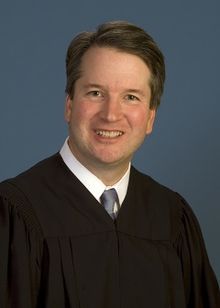This has been a great week for coverage of important campaign finance and political issues.
Center for Competitive Politics’ researcher Scott Blackburn wrote an op-ed for the Wall Street Journal, “Not Even Reformers Can Follow Campaign-Finance Law,” highlighting how the community advocating for increased policing of political speech doesn’t seem to understand how onerous their proposed regulations really are, in light of Lawrence Lessig’s MayDay PAC’s failure to follow the law:
How can a law professor—a self-avowed campaign-finance expert who has maintained that he is “a strong supporter of disclosure legislation”—running a $10 million super PAC fail to follow the law? Responding to the Center for Competitive Politics complaint, Mr. Lessig wrote on his blog that no one “could be confused about whom the ad was from, and anyone who cared could identify whom the PAC was funded by.” Undoubtedly true. But why not follow the law as written?
The article continues:
Supporters of ever more intrusive campaign-finance laws deny that spending regulations restrict political speech. But once the rules become so onerous that you have to hire an attorney to speak about election matters, only those with the money to do so will participate. And when it is likely that your attorney will make a mistake and that mistake can bring a heavy fine or criminal punishment, you are less likely to engage in politics—if only to avoid the legal headache.
Robert Bauer wrote a thoughtful response to Mr. Blackburn’s op-ed, available here, that is well worth reading in its entirety.
More information on CCP’s MayDay PAC complaint is available here.
Meanwhile, the Wall Street Journal’s opinion pages contained two noteworthy pieces by a current and former FEC commissioner.
In the first article, “Online Political Opinions Don’t Need Regulating,” FEC Commissioner Lee Goodman opines on the dangers of having the agency regulate YouTube videos (you can find an interview with Commissioner Goodman about this topic at this link).
The second piece is a letter from former FEC Commissioner Robert Lenhard (Raise Thresholds, Help Democracy) about raising the monetary threshold for which groups are required to register as a political committee. Mr. Lenhard’s letter is a response to an editorial by the Journal, “Campaign-Finance Bondage,” detailing how a few members of a local community in Arizona planned on making signs protesting a bond measure, but were told by the town’s election officials that they could not do so without registering as a political committee and filing regular reports.
Finally, the Journal’s editorial board tackled the issue of absurd campaign finance restrictions in their editorial “A Supreme Speech Opportunity.” The editorial examines the case Vermont Right to Life Committee v. Sorrell, a suit challenging Vermont’s overbroad political committee definitions. For more information on that case, check out CCP’s amicus brief.














